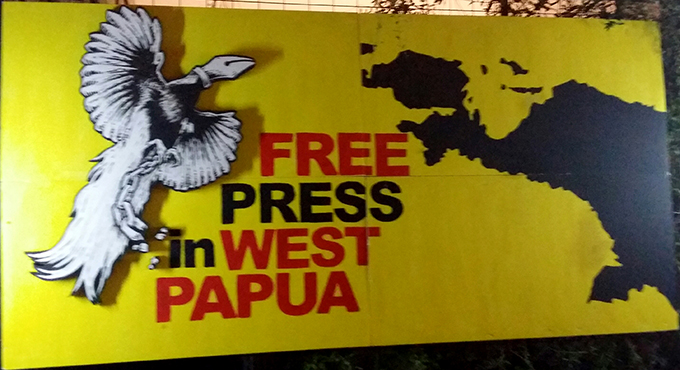
AUCKLAND: (Asia Pacific Report/Pacific Media Watch): Independent journalists, human rights defenders and freedom organisations in Timor-Leste have called appealed for international bodies to ensure the safety of Indonesian journalists.
With World Press Freedom Day events currently occurring in Jakarta, Indonesia, around 30 Timorese journalists, human rights defenders and members of the Timor Papuan Connection called for the United Nations Educational, Scientific and Cultural Organisation (UNESCO) to protect independent journalism.
In a statement, the group said independent journalists in Indonesia constantly risk their lives to report, highlighting the intimidation and abuse they face on a daily basis.
"Press photographers around the country face destruction of equipment, intimidation and assault when they report from the scene."
Independent media importance
On behalf of the group, Celestino Gusmāo Pereira, a researcher with La'o Hamutuk, The Timor-Leste Institute for Development Monitoring and Analysis, called attention to the importance of quality, independent media in advancing public awareness and addressing social and political injustice.
He said this is because Timor-Leste is all too familiar with the consequences when media freedom is restricted.
"Please do not forget that we in Timor-Leste are still waiting for Indonesia's accountability for the killings of the Balibo Five and Roger East in 1975, as well as of Agus Muliawan and Sander Thoenes in 1999."
Despite reports by witnesses and factual evidence, no one has been brought to justice regarding the murder of these journalists, the group states.
Restrictions still remain
The group also highlighted the lack of media freedom in West Papua, despite the lifting of restrictions by President Joko Widodo in 2014.
"Despite improvements following the departure of Suharto in May 1998, the government still maintains serious restrictions on journalists."
Journalists in Indonesia and foreign correspondents currently have to apply for special permission in the form of visas to enter the region.
"Even those who get permission are surveilled, intimidated, harassed and sometimes arrested arbitrarily by security forces."
In March, two French journalists were deported over alleged visa violations. Jean Frank Pierre and Basille Marie Longhamp were banned from entering Indonesia for six months after allegedly taking photos while on tourist visas.
Such actions by state security forces have also been the topic of a recent call by Human Rights Watch for Indonesia to ensure those who attack journalists are held to account.
Their call comes after data by Indonesia's Alliance for Independent Journalists (AJI) revealed an increase in the number of assaults on journalists in the region over the past two years.
There were 78 violent attacks on journalists in 2016, up from 42 attacks in 2015 and 40 in 2014. The AJI found only a few attackers from those 78 attacks had been brought to justice.
West Papua solidarity
In light of the media situation in West Papua, journalists gathered at the Century Park Hotel in Jakarta on Sunday.
The Free Press in West Papua Solidarity and Papua Cultural Night saw people gather to celebrate West Papua through music, dance, and art, and also show support for repressed journalists in the Indonesian-ruled region.
Attendees posted pictures on social media site Instagram with the hashtag #LetThemIn.
Difficulties surrounding media freedom in West Papua will also be at the centre of a discussion session today, ahead of the global conference tomorrow.
The discussion will include talks by Tabloid Jubi's founder, Victor Mambor, the head of Indonesia Amnesty International, Usman Hamid, and director of the Auckland University of Technology's Pacific Media Centre, Professor David Robie.
More than 1500 people have registered to attend World Press Freedom Day events this year, which began on Monday, May 1 and will run until Thursday, May 4.
- Activists, media freedom advocates plan 'global action' for West Papua
- RSF calls on Jokowi to honour pledge to let journalists work in West Papua
- Asia-Pacific holds many 'worst records' in media freedom report, says RSF
This work is licensed under a Creative Commons Attribution-NonCommercial 3



